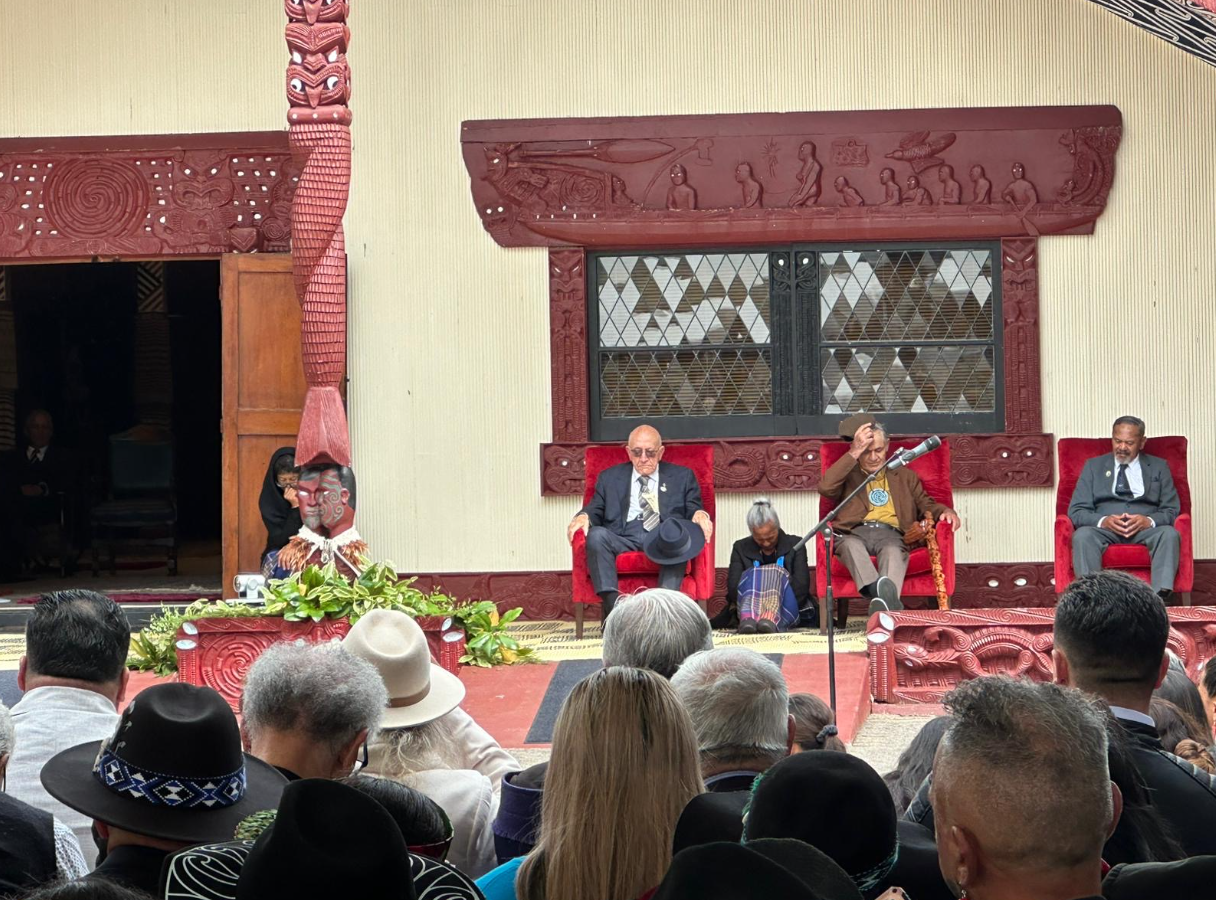Thriving Iwi = thriving community
Jan 28, 2024
By Justin Tipa
Having only recently been elected to the role of Kaiwhakahaere (Chair) of Te Rūnanga o Ngāi Tahu, I have been reluctant to be drawn into the heated public debates on Te Tiriti o Waitangi and its status in our country. However, the experience of attending the Hui ā Motu called by Kīngi Tūheitia last week alongside our Ngāi Tahu Upoko, Tā Tipene O’Regan and Edward Ellison, has made it clear to me that we cannot leave public discussion of significant issues to be controlled and shaped by everyone but us.
In considering how to respond to some of the more extreme anti-Māori rhetoric in present political debates I have found it valuable to draw on lessons from the past.
When Ngāi Tahu and the National-New Zealand First government negotiated the Ngāi Tahu settlement in the late 1990s, there were fears the whole island would be transferred, or the high country in Te Waipounamu would be closed off. In essence, there was fear of the unknown; often fuelled by misinformation. That fear led to violence, including several Ngāi Tahu buildings being burned by unknown arsonists.
Today, barely anyone knows about the arson attacks on Ngāi Tahu. What people see now is Ngāi Tahu working with councils, businesses, and communities in Te Waipounamu to revitalise towns and public spaces through tourism, create jobs and other development opportunities in the regions, engage in environmental protection and restoration projects, provide shelter and aid during crises like the Canterbury and Kaikōura Earthquakes, and invest in the success and wellbeing of our Ngāi Tahu whānau.
My point is that iwi Māori are an important force for driving practical progress and development in our country. Our identities as Māori will always have a political component—as has been evident in the 2023 election and its aftermath— but we should never allow our identities to be reduced to their politicisation.
So, forget the political posturing: New Zealand is facing serious social, environmental, and economic challenges that are contributing to lower standards of living and making it tougher for Māori and non-Māori to thrive in our communities. This is something we should all be able to recognise and agree on.
One lesson from the Ngāi Tahu experience is that progress in community cohesion, in mutual social care, in economic development, and in environmental vitality does not occur by accident. It requires the Crown, the private sector, communities, and Iwi to work together, and Iwi Māori to be entrusted with leadership responsibilities as tangata whenua.
This is why I have no hesitation in expressing my agreement with Prime Minister Christopher Luxon when he says that Wellington does not have all the answers and centralisation is not the way to improve outcomes in our communities. Having better representation around a board table in Wellington may help improve policy documents, but consultation with “Māori” at this level should not be confused with genuine partnership and practical success on the ground.
A second lesson is that disrespect and incivility arising out of a fear of the unknown will fail to achieve anything meaningful when confronted with sustained, tangible, and practical Māori success and development.
I have no knowledge of what the people who burnt down our Ngāi Tahu buildings in the 1990s are doing these days, but anyone with an interest can read in detail in our annual reports and other publications about what Ngāi Tahu, our 18 Papatipu Rūnanga, and 80,000 whānau have been doing for the 25 years since.
These days we still encounter our fair share of criticism and conflict, and there are still challenges for us to overcome, but there is no denying that Ngāi Tahu is a significant presence and an important factor in driving progress and development in Te Waipounamu. Even our most outspoken critics must acknowledge this.
Once it is recognised that thriving iwi contribute to thriving communities, I believe any remaining trepidation about the prominence of te reo Māori, tikanga, and tribal authority will either fade from memory or be confined to those whose opposition was never tied to a genuine desire to improve our country in the first place.
In the meantime, our team at Te Rūnanga o Ngāi Tahu will continue to ensure the administrative and economic infrastructure of our iwi is geared towards serving the development of our pā and marae, the wellbeing and success of our people, the vitality of our culture and natural environment, and, ultimately, the general good of our country.
